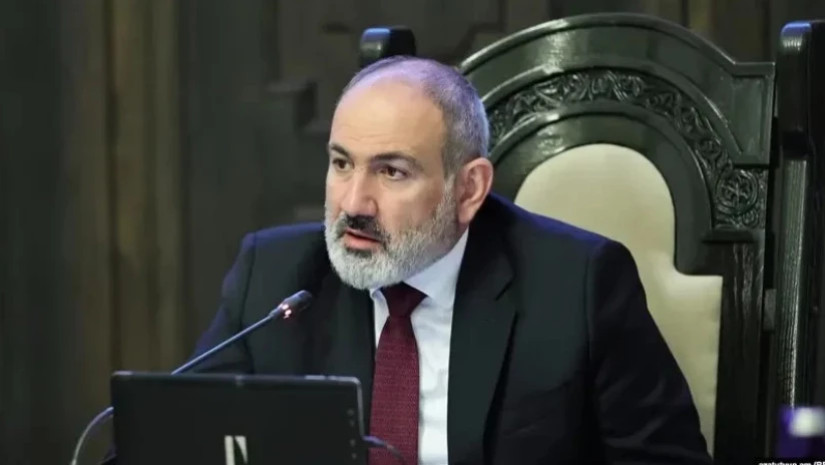Armenian Prime Minister Nikol Pashinyan will visit Turkey in the coming days, at the invitation of its president Recep Tayyip Erdoğan, the country’s parliamentary speaker announced on Tuesday.
“The Prime Minister’s visit to Turkey is historic, because it is the first time that the head of Armenia will make a visit of such a level,” Alen Simonyan told reporters.
This follows a visit to Ankara by Armenian Deputy Foreign Minister Vahan Kostanyan, who met with his Turkish counterpart Berris Ekinci on Monday to discuss regional issues and bilateral relations as part of the ongoing Armenia–Turkey normalization process.
Armenia’s Deputy Speaker of Parliament and special envoy to Turkey, Ruben Rubinyan, said Tuesday that the dialogue includes not only his own talks with Turkey’s envoy but also communication between the two countries’ foreign ministries and other officials.
As per reports in Azerbaijani media, Azerbaijan’s President Ilham Aliyev will also travel to Turkey this week, with no details as to whether it is planned that he will hold talks with Pashinyan.
Pashinyan’s latest contact with Erdogan was on June 5, when they held a phone call to discuss bilateral ties and agreed to keep the dialogue going. Pashinyan visited Turkey in June 2023 to attend Erdoğan’s inauguration. This was the first visit of an Armenian leader to Turkey since 2009 when Armenian President Serzh Sargsyan and his Turkish counterpart Abdullah Gül exchanged visits, the only occasion of a Turkish head of state arriving in Yerevan.
While Yerevan and Ankara have no formal diplomatic relations, their contacts have intensified since 2022 when the two countries’ special envoys agreed to open their shared land border, shuttered since 1993, for nationals of third countries and diplomats. With no exact date or roadmap specified, this project has seen no progress for almost three years, although Armenia has overhauled its border checkpoint in the village of Margara on the Turkish border, stressing it is ready for operation.
Despite the border remaining officially closed, the checkpoint was used twice: first in February 2023, when Armenia sent trucks of humanitarian aid to victims of a devastating earthquake in Turkey, and again in March this year to deliver aid to Syria via Turkish territory.
While Yerevan continues to take a cautious approach in its dialogue with Ankara, Armenia’s Foreign Minister Ararat Mirzoyan said earlier this month that “anyone would be right to say it’s time for that dialogue to yield visible outcomes.”
In addition to the border issue, the ongoing disputes include Turkey’s refusal to acknowledge the Armenian Genocide, as well as its crucial role in aiding Azerbaijan in the 2020 Karabakh war.


















